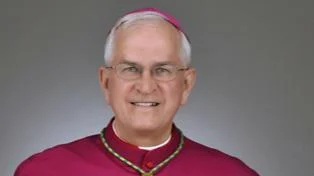
Reverend Joseph E. Kurtz, D.D. Bishop | Archdiocese of Louisville
A gathering took place on November 9 at St. Elizabeth Ann Seton Church for the Archdiocese of Louisville’s Asian and Pacific Island Day of Reflection. The event, organized by the Office of Multicultural Ministry, brought together around 30 parishioners from Korean, Vietnamese, Filipino, and Indian communities.
M. Annette Mandley-Turner, executive director of the Office of Multicultural Ministry, stated that the day aimed to help these communities find "common threads" to bring them closer. “It’s a way to bring the diverse Asian community together so they can enhance their knowledge of one another,” she said.
Franciscan Father Linh N. Hoang, a professor at Siena College in Albany, New York, addressed the group. He discussed ways to implement the U.S. bishops’ 2018 pastoral letter “Encountering Christ in Harmony: A Pastoral Response to Our Asian and Pacific Island Brothers and Sisters.” Father Hoang emphasized cultural elements like food as tools for fostering encounters within these communities and with the broader society.
Father Hoang posed a question: “Why did God create creatures that they might eat, and what does that mean?” He explained that this dependency makes us responsible for creation and each other. “When we think of that it helps us see where God is going deeper in our lives,” he added.
He further elaborated on how food has played a central role in Christianity's development and its influence on both cultural and personal identity. These are "points of encounter that help us engage" as people of faith.
Father Minh Vu shared his experiences using food to connect different groups while serving as pastor at St. Athanasius Church. The parish hosted a festival called “World Taste of St. A. Family Fest” instead of a picnic, allowing various cultural groups to share dishes with the wider faith community.
“It gave the small (cultural) groups and newcomers an opportunity to be themselves and create a sense of belonging,” said Father Vu. This sharing fostered pride among participants by reinforcing "that everyone has something to contribute."
Mandley-Turner highlighted how sharing food provides non-threatening learning opportunities: “By eating your food, I’ll learn about you and hopefully, you can learn from me.”
Father Hoang concluded by noting that sharing food is central to Catholic faith as demonstrated by the Gospel account of the Last Supper: “With food, we become one," he stated.






 Alerts Sign-up
Alerts Sign-up